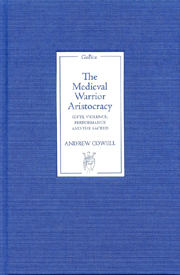Roland is hardly unique as an example of the supplemental hero. In fact, supplementally is a key feature of medieval heroes in several traditions. In the Middle High German Nibelungenlied, an epic from around the year 1200 which will be discussed in more detail in the following chapter, the hero Siegfried shows the same types of behavior. Arriving at the renowned castle of Worms, he is warmly greeted by the brothers of Kriemhild, whom he hopes to marry, but goes out of his way to increase the odds against his success:
Mir wart gesaget mare in mînes vater lant,
daz hie bî iu wæren (Daz het ich gerne erkant)
die küenesten recken (Des hân ich vil vernomen)
kie ie künic gewunne; dar umbe bin ich her bekomen. (St. 107)
Ich bin ouch ein recke und solde krône tragen.
Ich wil daz gerne füegen daz si von mir sagen
daz ich habe von rehte liute unde lant.
Dar umbe sol mîn êre und ouch mîn houbet wesen pfant.
Nu ir sit sô küene, Als mir ist geseit,
sone ruoche ich, ist daz iemen liep oder leit;
ich wil an iu ertwingen swaz ir muget hân:
land unde bürge, daz sol mir werden undertân.
